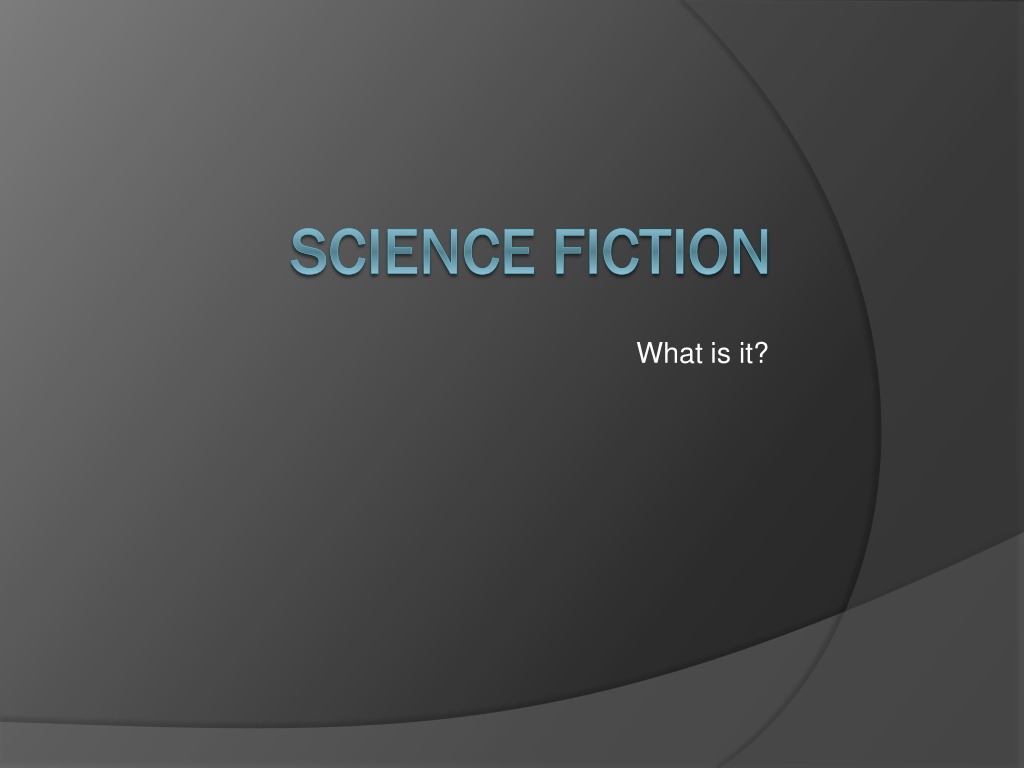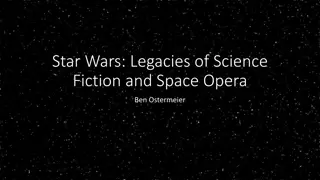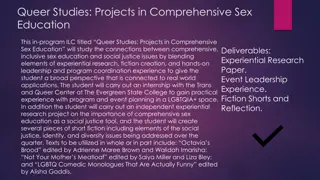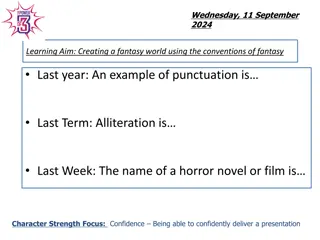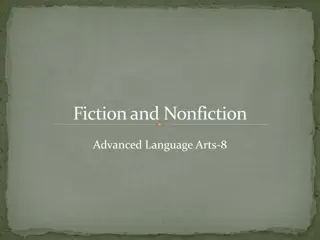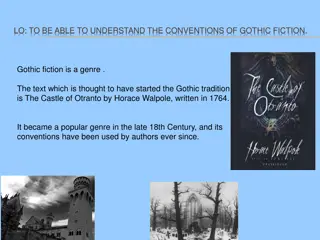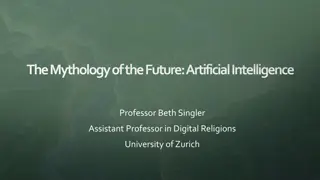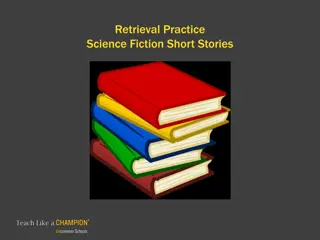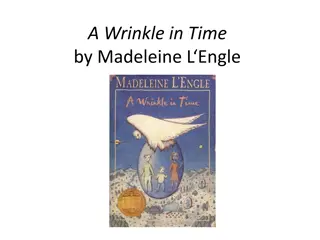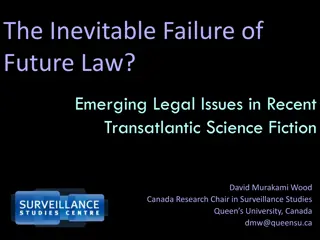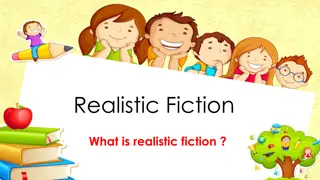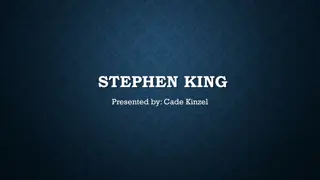Exploring the World of Science Fiction
Science fiction is a genre that delves into imagined future scientific and technological advances, exploring major societal and environmental changes, space travel, time travel, and life on other planets. It combines elements of science and fiction to create believable yet captivating narratives that offer insights into the potential impact of new discoveries and developments on humanity. From early pioneers like H.G. Wells and Jules Verne to modern-day authors like Isaac Asimov and Ray Bradbury, science fiction continues to captivate audiences with its exploration of human nature, technology, and the unknown.
Download Presentation

Please find below an Image/Link to download the presentation.
The content on the website is provided AS IS for your information and personal use only. It may not be sold, licensed, or shared on other websites without obtaining consent from the author. Download presentation by click this link. If you encounter any issues during the download, it is possible that the publisher has removed the file from their server.
E N D
Presentation Transcript
SCIENCE FICTION SCIENCE FICTION What is it?
defintion fiction based on imagined future scientific or technological advances and major social or environmental changes, frequently portraying space or time travel and life on other planets.
Science fiction is a genre of fiction in which the stories often tell about science and technology of the future. It is important to note that science fiction has a relationship with the principles of science these stories involve partially true-partially fictitious laws or theories of science. It should not be completely unbelievable, because it then ventures into the genre fantasy. The plot creates situations different from those of both the present day and the known past. Science fiction texts also include a human element, explaining what effect new discoveries, happenings and scientific developments will have on us in the future. Science fiction texts are often set in the future, in space, on a different world, or in a different universe or dimension. Early pioneers of the genre of science fiction are H. G. Wells (The War of the Worlds) and Jules Verne (20,000 Leagues Under The Sea). Some well-known 20th century science fiction texts include 1984 by George Orwell, Brave New World by Alduous Huxley, and The Fountainhead by Ayn Rand. In addition, the four most-popular and well-recognized 20th century authors are Isaac Asimov, author of the Foundation trilogy and his robot series, Arthur C. Clarke famous for 2001, a Space Odyssey; Ray Bradbury, known for his Martian Chronicles, and Robert Heinlein, author of Stranger in a Strange Land and The Moon Is a Harsh Mistress.
S ci F i A uthors D efinitions T he author T heodore S turgeon said, "'A good science-fiction story is a story about human beings, with a human problem, and a human solution, which would not have happened at all without its science content'" S ci F i A uthor s D efinitions T he author T heodore S turgeon
R emember: W riters take scientific possibilities and develop them step-by- step from known data from known data to form a story.
M ajor T hemes in S cience F iction S pace travel to and from other planets (ie: S tar W ars, S tar T rek) T ime travel to the past and future (ie: B ack to the F uture) P sychological/ biological changes to man brought about by scientific changes (ie: T he Incredible H ulk, S pider M an)
M iriam A llen de F ord explains the difference between science fiction and fantasy: "'S cience fiction deals with improbable plausible improbable possibilities, fantasy with plausible impossibilities" (A ldiss 2 6 ).
T he first true science fiction novel was F rankenstein by M ary S helley. S he wrote about scientific practices and tried to persuade the reader that her story could actually happen.
F rankenstein to deal with the possibility that science can create a monster that can destroy science, and possibly mankind. F rankenstein was the first novel in E nglish M ary S helley did not wish the story to be considered "supernatural . S he made the main character a scientist and his scientific efforts were highlighted.
W hat is S cience F iction? S cience fiction is a writing style which combines science and fiction. W hat is S cience F iction? It is only limited by what we presently know about the basic physical laws of nature. It evolved as a response to fantasy.
Sci-fi vs. Fantasy SCIENCE FICTION: A genre that extrapolates from current scientific trends. The technology of a science fiction story may be either the driving force of the story or merely the setting for a drama, but all science fiction tends to predict or define the future. FANTASY: A genre not based in reality presupposing that magic and mythical/supernatural creatures exist.
Recap Sci-fi def.??? Characteristics of sci-fi??? Major themes in sci-fi???
Naming of Names Pg. 153 In Notebook: Notes Section write out and answer as we read: Title: Author: Setting: Characters: POV: Conflict Plot: Tone: Symbols:
